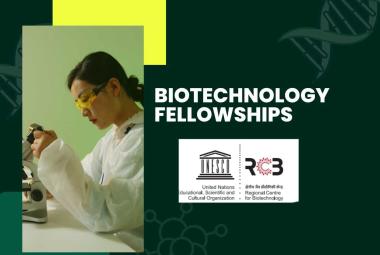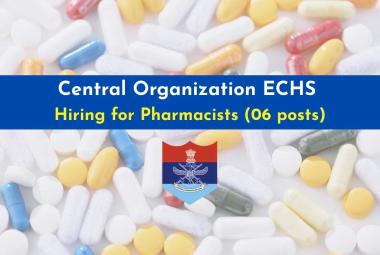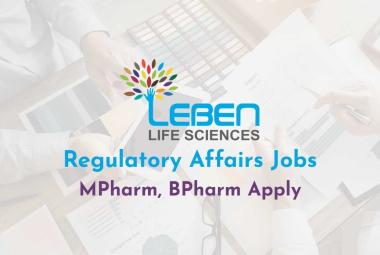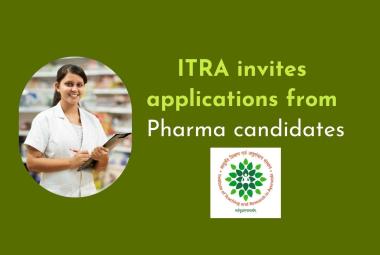{ DOWNLOAD AS PDF }

Pranita Pradip Dharmadhikari
Department of Phrmacology,
N.D.M.V.P. College of Pharmacy, Nashik
2009pranitadh@gmail.com
“Pharmacy is the health profession that links the health science with the chemical science and it is charged with ensuring safe and effective use of pharmaceutical drugs.” That’s how the Wikipedia defines it. For a student it is a career, an ambition and of a course a learning process.
Pharmacy education in India was initiated by Medical College; Madras in 1860, the purpose was to develop pharmaceutical skills of students of medical degree or diploma course or of that pursuing hospital assistance. From 1860 to 2014 the pharmacy profession shows a tremendous growth in India, it shows that pharmacist is one of the major fraternities of health care system around the world. As a pharmacist, I must say that pharmacy is profession which benefits to the world. But certain area in pharmacy are consistently points the pharmacist as towards negative aspects. Hence it’s a pharmacist’s duty to focus on wrong practices to make a profession as boon for world.[1]
[adsense:336x280:8701650588]
REFERENCE ID: PHARMATUTOR-ART-2329
|
PharmaTutor (ISSN: 2347 - 7881) Volume 3, Issue 4 How to cite this article: PP Dharmadhikari; Pharmacy: Boon or Bane; PharmaTutor; 2015; 3(4); 10-11 |
Mrs. Gloria Abumere had decried the dearth of pharmacists in the country, stating that this was a contributing to the declining trend in Nigeria’s health care indices. Mrs. Abumere, who spoke at the 26th induction and oath-taking ceremony of 50 pharmacists at the University of Ibadan, said that the fresh pharmacists would contribute to addressing the paucity of pharmacists in the health care delivery system. According to her, “the number of pharmacists would definitely increase the circle of impart and influence of the pharmacy profession.”With the increasing availability of medicines and their declassification from Prescription Only Medicines (POM) to Over the Counter (OTCs) medicines, she stated the need for pharmacists to help monitor not only the efficacy of medicines but also their safety as well. The words from Mrs. abumere indicate that pharmacy profession is well known as health care provider and further need for pharmacist in Nigeria.[2] India is known as pharmacy of third world
India’s produced medicines are available throughout the globe both advanced and underdeveloped countries. India is known as pharmacy of the third world. The country has strong industrial pharmacy presence and performance which has worldwide acceptance and appreciation.
Such god gifted pharmacy profession, wrongly interpreted because of certain wrong practices like polypharmacy. This From Research to Practice section focuses on polypharmacy, a term we do not often hear or read about in publications dealing with diabetes. Nonetheless, many of us routinely encounter the phenomenon of polypharmacy, or multiple medications, when dealing with patients. In general, the term “polypharmacy” carries negative connotations, including increased costs, poorer compliance, and increased risk of side effects and drug interactions. Certainly all of these factors require careful consideration. Still, polypharmacy may be a necessity to effectively manage diabetes and its associated complications and co morbidities. For example, a patient may require three oral medications to manage blood glucose, three medications for blood pressure control, and an additional two to three medications for lipid control. This would be a total of nine chronic medications not including aspirin or drugs for other diseases the patient may have. Some would argue that the goal should be to decrease the number of medications this patient requires. But while that course of action may be appropriate, I would counter that the primary goal should be to determine whether the medications are indicated for the disease state and whether they are safe and effective for the patient. It could be that this patient truly needs nine medications.
[adsense:468x15:2204050025]
Polypharmacy can be beneficial, giving us more therapeutic options to help patients achieve better outcomes. However, patients’ use of multiple medications requires their health care professionals to have a better understanding of prescription and OTC medications as well as nutritional supplements, herbal products.
Picture this.
You are waiting in the waiting room at your doctor office. Look around, fellow patients are not only ones there. You know who I am talking about, medical representatives with their huge bags. Hold on, the bags doesn’t contain only medicines, there are gifts. Ever stop and wonder about these practices??? What is expected in return of these gifts?? Prescriptions. The key persons who act as link between the physicians and the companies are the medical representatives. The ethical practice would be when these reps are trained by company to stop giving non related gift items to physicians in returns of prescriptions, and in turn trained on doing their duty of providing the right information of the drug with its benefit and safety. Let the doctors decide the winner in this number game.
All the glitzy adds on “idiot box” that make us busy stuff we probably need not a part of the Pharma realm. I understand the ethical consideration involved due to drug abuse and drug being bought without prescription, but isn’t telling people about life saving drugs more important than asking them to shell out money for latest steam iron or the new vitamin enriched chewing gum?
WELL NO!!!
It’s true. I don’t believe the Indian pharmaceutical industry is mature enough to go through such huge transitions. First, we need to get proper control system at the retail level to regulate the safe sale of prescription drugs. Secondly, we need to ask ourselves the question that, as a society, are we ready to shop the currently unethical practices that we follow as consumers??
When every pharmacist in world say,
At this time, I vow to devote my professional life to the service of all humankind through the profession of pharmacy.
I will consider the welfare of humanity and relief of human suffering my primary concerns.
I will apply my knowledge, experience and skills to the best of my ability to assure optimal drug therapy outcomes for the patients I serve.
I will keep abreast of developments and maintain professional competency in my profession of pharmacy.
I will maintain the highest principles of moral, ethical and legal conduct.
I will embrace and advocate change in the profession of pharmacy that improves patient care.
I take these vows voluntarily with the full realization of the responsibility with which I am entrusted by the public.
The few true words when comes in Pharma picture ……we all feel proud to be a pharmacist.
REFERENCES
1. Merlin N.J.; Pharmacy Careers - An Overview; Asian J. Res. Pharm. Sci.; 2011; 1(1); 01-03.
2. Jon C. Schommer et al.; Innovations in Pharmacy through Practice-Based Research; Innovations in pharmacy; 2010; 1(1); 9.
NOW YOU CAN ALSO PUBLISH YOUR ARTICLE ONLINE.
SUBMIT YOUR ARTICLE/PROJECT AT editor-in-chief@pharmatutor.org
Subscribe to Pharmatutor Alerts by Email
FIND OUT MORE ARTICLES AT OUR DATABASE









